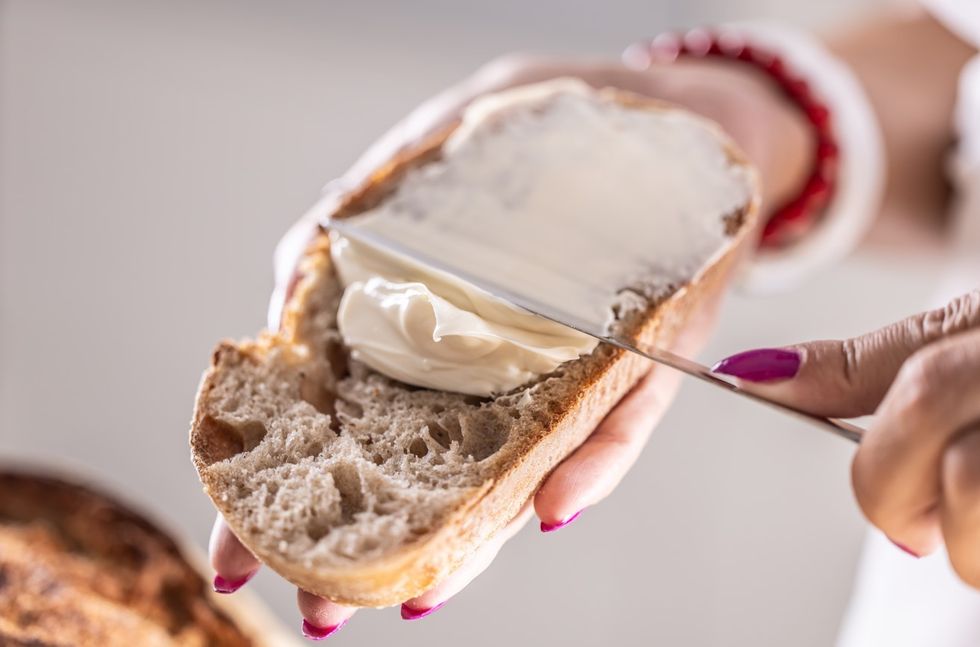Oats can do wonders for reducing cholesterol
GETTY
Kickstarting the day with the right ingredients may help quell cardiovascular complications
Don't Miss
Most Read
Trending on GB News
A nutritious breakfast is an essential start to the day when dealing with chronic conditions like high cholesterol.
By skipping the first meal of the day, patients risk getting hungrier later in the day, which can negatively impact their lipid profile.
Although managing high cholesterol can require a two-pronged approach combining diet and medicine, natural methods may help when the condition is caught early enough.
According to the NHS, the following cholesterol levels are deemed healthy:
- Total cholesterol: Below five milimoles per litre (mmol/L)
- HDL (good cholesterol): Above 1.0 mmol/L for men or above 1.2 mmol/L for women
- Non HDL (bad cholesterol: Below 4mmol/L

High cholesterol levels are closely tied to cardiovascular complications
GETTY
Speaking to GB News, an expert explained how some individuals significantly reduce their levels through dietary changes alone, enjoying reductions of up to 60 points within just six to eight weeks in some cases.
Though these impressive results can be achieved through targeted lifestyle modifications, the exact reduction tends to vary between individuals, according to Cardiology dietitian Michelle Routhenstein.
According to the expert, the key to success lies in making gradual dietary adjustments that allow the body enough time to adapt while avoiding digestive discomfort. She explained: "As a cardiovascular dietitian I've seen people lower their LDL cholesterol by anywhere from 20 to 60 points in about 1.4 to two months.
"To lower LDL cholesterol, it is important to limit saturated fats, as they prevent the liver from effectively breaking down LDL.
"Soluble fibre helps lower cholesterol by binding to it in the intestines, preventing its reabsorption into the bloodstream. This encourages the liver to use more cholesterol to produce bile acids, which in turn reduces LDL cholesterol levels."
Michelle recommended adding foods that are rich in soluble fibre, such as oats, beans and whole grains can help not only lower cholesterol but also promote gut health and reduce inflammation, which is closely linked to heart health.
"Soluble fibre is fermented in the gut to produce butyrate, a short-chain fatty acid that supports gut function, decreases inflammation and may further help regulate cholesterol by enhancing metabolic processes and aiding the liver in fat metabolism," the expert explained.
Just 44 grams of steel-cut oats pack four grams of dietary fibre, which binds to cholesterol in the digestive tract and helps expel it from the body.
LATEST DEVELOPMENTS
- How to reduce cholesterol without statins: Three non-pharmaceutical interventions that work 'in as little as four weeks'
- How to live longer: Incorporating 3 nutrient-packed foods into your diet can help boost longevity
- 'I'm a doctor - your chocolate should meet two criteria if you want to slash your diabetes risk'

Saturated fat should be limited where possible
GETTY
To lower cholesterol further, dieters are encouraged to top their porridge with sliced apple, pear and raspberries for an extra boost of fibre.
Those who may not have the time to cook oats in the morning can have cold oat cereal too as long as they avoid varieties packed with sugar.
Mei Wan reiterated the benefits of adding oats to the diet, noting that just 1.5 cups of oats daily can make a difference.
"Soluble fibre-rich foods such as oats, beans, apples and citrus fruits help lower cholesterol by binding to it in the digestive system, reducing its absorption," the expert noted. "For example, just 1.5 cups of cooked porridge oats daily may help lower LDL cholesterol by up to 10 per cent over time."








